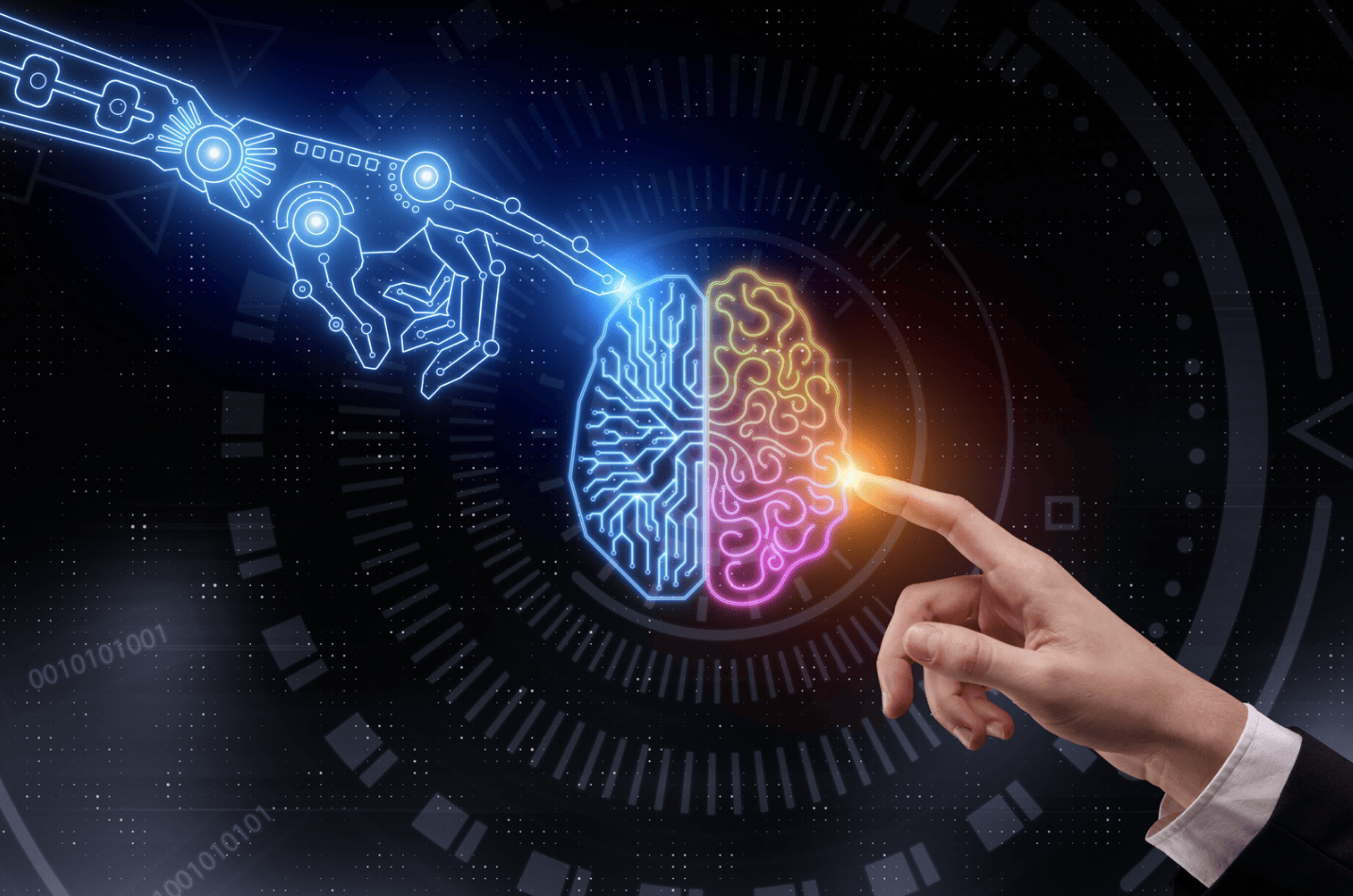Artificial intelligence (AI) is a growing trend in most industries in 2023, and the health and wellness sector is no different. AI-powered wellness technology is available for tracking and optimizing everything from physical fitness, mental health, and stress management to nutrition tracking and sleep health.
Rising healthcare costs and the pandemic pushing our lives online led many people to search for ways to treat and prevent disease proactively, at home and with emerging technologies.
Enter wellness tech.
The uses of AI in wellness technology are vast and far-reaching. Let’s discuss the many benefits of AI in health and wellness, how AI can help you take control of all aspects of your health, and where artificial intelligence and health tech will take us in the future.
Understanding AI-Powered Wellness Technology
If you are unfamiliar with AI and its related “smart” technologies, trusting these programs with sensitive information about your health can seem daunting.
Let’s define some standard terms in this blog and similar articles.
Artificial Intelligence: a machine’s ability to perform the cognitive functions we generally associate with human minds.
Natural Language Processing: a branch of AI that allows computers to understand text and spoken words, much like humans can.
Machine Learning: a form of AI based on algorithms that allows computers to learn without being explicitly programmed.
How are these technologies being used for health and wellness benefits?
One example is an AI chatbot using Natural Language Processing (NLP) to provide cognitive behavioral therapy techniques to people struggling with anxiety and depression. Another is an app-connected device placed inside your toilet that provides continuous urinalysis at home, tracking biomarkers and providing tips for optimal health.
Wearable AI-powered wellness tech is another booming industry. You can wear rings and bracelets 24 hours a day that track your sleep, respiratory health, recovery from exercise, and more. One company makes a wearable stethoscope to track your heart rate.
These emerging technologies enable complete control of your health. They allow for data-driven solutions that you can present to your healthcare providers for top-notch, personalized care.
AI-powered health and wellness takes healthcare out of the traditional clinical setting and puts the power of preventive care in your hands.1
AI-Enhanced Fitness and Exercise Tracking
Fitness and exercise apps are not new, but the addition of AI technology is. AI and machine learning are taking fitness optimization to new levels, providing accurate data for performance tracking, customized metrics, and more personalized exercise plans.
Real-time data and insights give users instant feedback and allow for tweaks and adjustments to their fitness plans, allowing greater control in reaching long-term goals.
Minor tweaks and adjustments are a central tenet of our Iterative Mindset Method™, a groundbreaking approach to lasting healthy habit formation and lifestyle change. AI-enhanced fitness and exercise tracking is another tool in your toolbox for creating a healthier life for yourself.
Let’s look at WHOOP as an example. WHOOP is a bracelet that tracks metrics relating to sleep health, body strain factors like cardiovascular and muscular load, and recovery factors such as resting heart rate, respiratory rate, stress levels, and hydration.
Logging daily behaviors in the app and combining that with WHOOP’s 24-hour tracking, you can see how each variable affects your body and everyday health, analyze trends and tweak behaviors, and find a balance to reach optimal physical fitness.
AI-Driven Nutrition and Dietary Planning
We all know healthy eating is crucial for overall health, but we don’t always know how to eat well for specific health goals. AI enables personalized nutrition and dietary planning that was previously only available through a registered dietician or nutritionist’s guidance, which may not be accessible to many people.
AI nutrition apps synthesize an individual’s genetic health data, overall health goals, and health status to provide customized dietary recommendations and meal plans. Users can then input their daily food intake and track calories, nutrients, and trends in their nutritional behaviors.
Youniq is an app that processes a range of personal information, uses algorithms to suggest meals that fit your goals, and turns those recipes into actionable tools like shopping lists and recipes. The algorithm can also use what you have in your refrigerator to create recipes with food you already have on hand.
AI-Powered Mental Health and Stress Management
The Covid-19 pandemic highlighted the mental health issues that many people were struggling with in our modern world. We have seen a proliferation of AI-powered mental health apps over the past few years, and many have debated the effectiveness of mental health and stress management through an app.
Traditional mental healthcare has some issues – accessibility, stigma, and high costs, to name a few – that app-based mental health services can overcome. Chatbots and virtual therapists can use algorithms and machine learning to teach people strategies for taming anxious thoughts, provide an outlet for those struggling with depression, and more.
A study conducted in India showed that digital CBT was significantly effective in improving mental health outcomes in adults.2 While human connection and trained therapists may still be the best options for mental healthcare, AI-powered mental healthcare is a solid, accessible alternative.
AI-Enabled Sleep and Well-Being Solutions
Sleep quality is essential for overall well-being. We know adults should sleep for at least seven hours per night, but there hasn’t historically been a way to analyze the quality of your sleep each night. AI can track movement, snores, breathing, and body temperature throughout the night, enabling you to discover your optimal sleep environment and gain insights into your sleep patterns.
Personalized sleep recommendations are critical in quality sleep health. Wearable technology is available to help track your sleep, but what if you go straight to the source – your mattress?
Tempur-Pedic introduced its Sleeptracker-AI technology that integrates with its “smart” mattresses to monitor and analyze your sleep patterns and provide valuable suggestions and insights for improved sleep quality. AI tracks total sleep time, REM sleep, wakeups, heart and respiratory rates, and sleep efficiency.
The Future of AI in Wellness Technology
As AI becomes more integrated into our lives, personalization is vital. Imagine a near future where we use AI tools alongside our healthcare providers’ insights on our journey to increased health. The AI insights must be specific and tailored to the individual, not broad generalizations for people with similar goals.
AI technology has the potential to revolutionize support for health and wellness, especially in diagnostics. With data from AI-enabled tools, people can analyze their health data and identify patterns that may signal a more significant health issue.
Take Control of Your Wellness with AI and Fresh Tri
AI-powered technology can enhance many facets of our health and wellness journeys. We can optimize our fitness routines, nutritional intake, and sleep patterns and take control of our mental health with our smartphones.
However, no matter how powerful the technology is, the philosophy behind the lifestyle changes needs to be rooted in science. The best approach is to pair Fresh Tri’s Iterative Mindset Method™ with your favorite AI-powered wellness technologies and tweak and adjust your way to success.
Download the Fresh Tri app today and start your journey to a healthier lifestyle.
References
- Cho, P. J., Singh, K., & Dunn, J. (2021). Roles of artificial intelligence in wellness, healthy living, and healthy status sensing. Artificial Intelligence in Medicine, 151-172. https://doi.org/10.1016/B978-0-12-821259-2.00009-0
- Samantray, Snigdha. (2023). Efficacy of digital cognitive behavior therapy intervention on adults enrolled in mental wellness care program on Mfine Application. World Journal of Advanced Research and Reviews. 18. 10.30574/wjarr.2023.18.3.1179.













